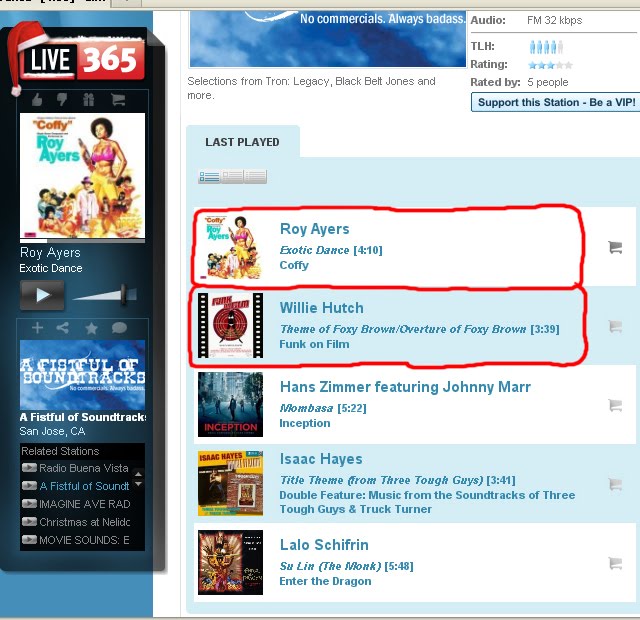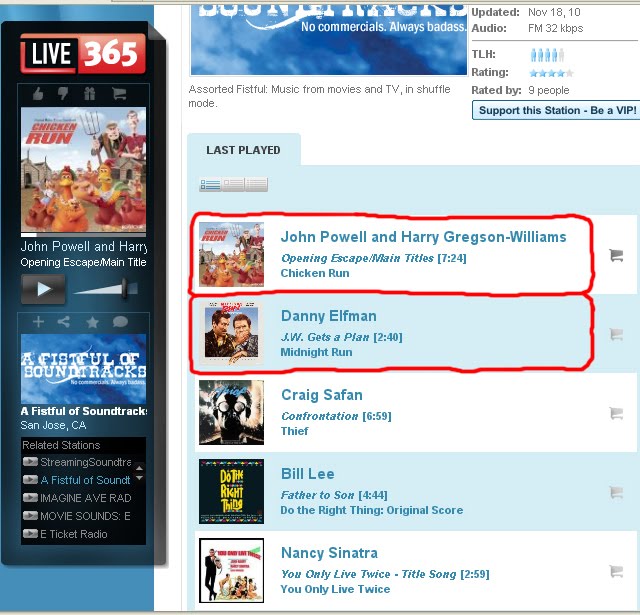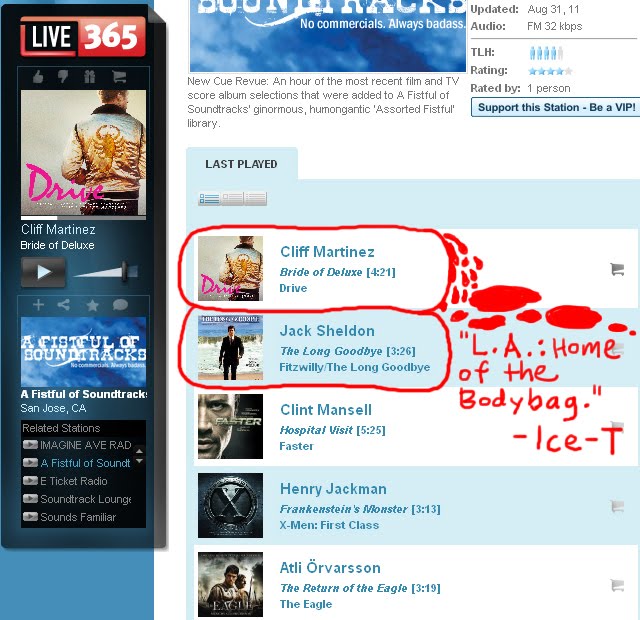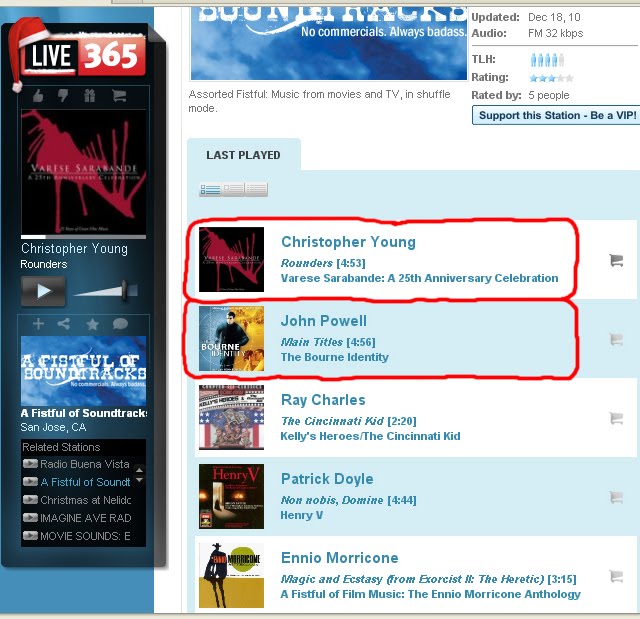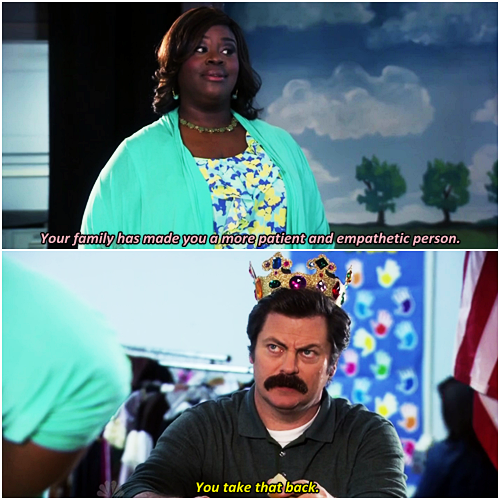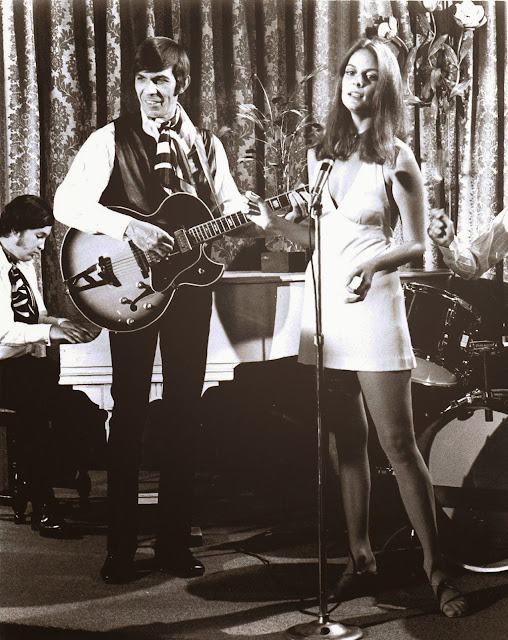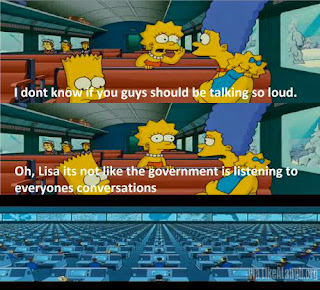Every Throwback Thursday, I randomly pull out from my desk cabinet--with my eyes closed--a movie ticket I saved. Then I discuss the movie on the ticket and maybe a little bit of its score, which might be now streaming on AFOS.Robert Zemeckis'
Flight, the story of an airline pilot whose heroism in the cockpit is called into question after investigators discover he was intoxicated, is a rare example of the mismarketing of a film actually paying off. Paramount sold
Flight primarily as a "prestige" disaster flick, even though
Flight's riveting plane crash sequence lasts only eight minutes in the movie's first half-hour. How the hell do you sell the rest of the movie, a dark addiction drama about both Denzel Washington and Kelly Reilly's struggles to get clean? You just simply don't.
Nobody really enjoys addiction dramas. The only people who enjoy them are the actors who make them and get their kicks--and occasionally, an impressive paycheck--from going Method to portray junkies or alcoholics. Addiction dramas are often such a repetitive slog, due to the addict characters' repetitive habits and relapses, while the ones that are less tedious or simply better-crafted aren't really made for repeat viewing. I admire the filmmaking on display in
Requiem for a Dream, but the film's third act was so harrowing and nightmarish I'm not itching to watch it again.
Leaving out
Flight's addiction footage and only hinting at it in the legal drama clips was as risky a marketing move for Paramount as emphasizing the addiction angle would have been: what if the most hardcore Denzel stans--particularly black moviegoers with conservative tastes in film (read: Tyler Perry movies) who love it when Denzel plays either a positive role model or an action hero, which, by the way, are the kinds of roles where I tend to find Denzel to be at his least compelling as an actor--come to
Flight to see their hero valiantly pilot an endangered plane as advertised, but they wind up being turned off by seeing him portray such a flawed and often unsympathetic boozer for the rest of the film? And then what if they leave the theater feeling
had, took, hoodwinked and bamboozled, and as a result, the word-of-mouth for
Flight turns sour? Yet Paramount's odd strategy somehow worked because all of Denzel's dramatic material after the badass plane crash sequence turned out to be equally captivating anyway--his subtle, gutsy and convincing performance as alcoholic airline pilot Whip Whitaker is far more worthy of a Best Actor Oscar trophy than his Oscar-winning turn as the Antoine Fuqua equivalent of a two-dimensional '60s comic book villain in
Training Day--and
Flight ended up becoming a critical and financial success in 2012.
After a string of often creepy-looking motion-capture fantasy movies that divided both critics and moviegoers,
Flight marked the welcome return of the craftsman behind
Used Cars,
Back to the Future and
Cast Away to grown-up filmmaking (yes, he made the Best Picture Oscar winner
Forrest Gump, but the sappy and underwhelming
Gump is hardly grown-up filmmaking). I haven't watched
Used Cars, Zemeckis' only R-rated film until he made
Flight, but I'm aware that the 1980 cult favorite is Zemeckis at his most biting and raunchy, raunchier than what the animators attempted to get away with during much of the material involving either Jessica Rabbit, Baby Herman or Betty Boop in Zemeckis' 1988 classic
Who Framed Roger Rabbit. This mischievous side of Zemeckis from
Used Cars and
Roger Rabbit resurfaces in the unlikeliest of movies:
Flight.
Part of what makes
Flight better than the average addiction drama is the levity Zemeckis sneaks into this mostly somber piece of Denzel Oscar-bait, whether it's in the comic relief scenes where John Goodman temporarily steals the show as Harling Mays, Whip's oddly maternal drug dealer, or the opening hotel room scene where former
My Name Is Earl viewers got to finally see Nadine Velazquez in all her full-frontal glory. The opening scene, which establishes Whip's alcoholism and coke habit, as well as the similar substance abuse problems of Velazquez's flight attendant character Katerina, is almost comedic in how it upends moviegoers' expectations about a typical introduction of a Denzel character and basically says, "Whip's not exactly the noble character Denzel frequently plays" (although he's played tormented alcoholics before, like in
Courage Under Fire). It's even got Whip making a Bond-style pun while staring at Katerina's naked ass:
Zemeckis even sneaks in a pair of in-jokes about one of Denzel's most frequent collaborators and a past Denzel movie. I'm going to invert the following screen shot like Whip does with his plane.
Peep the stack of VHS tapes in the Whitaker family's old countryside house. One of the tapes is a copy of
Top Gun, which was made by Tony Scott, who directed Denzel in
Crimson Tide,
Man on Fire,
Déjà Vu, the
Taking of Pelham One Two Three remake and
Unstoppable. I wouldn't be surprised if that was both Zemeckis and Denzel's way of paying tribute to Scott, even before the
Crimson Tide director committed suicide while
Flight was in post-production. Another video in that stack is a copy of Denzel's 1987 Steve Biko movie
Cry Freedom. That means that
Flight takes place in a bizarre reality where Denzel is a movie star and an alcoholic pilot who looks a lot like Denzel becomes a media darling for unconventionally and skillfully piloting a malfunctioning plane to safety, but nobody ever comes up to Whip and says, "Hey, has anybody ever told you you've got the marquee good looks of Denzel? Here's my number at
CAA. Let's do lunch some time."
Hmm, I wonder why
Virtuosity isn't in that stack of videos. Anyway, another element that elevates
Flight above the standard addiction drama is the movie's engaging and non-didactic legal drama side, particularly in the scenes between Denzel and Don Cheadle as Whip's efficient--and quietly frustrated, especially over Whip's behavior--lawyer, which are at times as electric as the scenes between Denzel and Cheadle in
Devil in a Blue Dress. In
Flight, Denzel and Cheadle reverse their
Devil in a Blue Dress roles as, respectively, the straight arrow and the troublemaker who has to be kept in line by the former.
Flight is as close to the Denzel-as-Easy/Cheadle-as-Mouse reunion movie we'll sadly never get to see due to
Devil in a Blue Dress' box-office failure during the weekend of the O.J. Simpson verdict in 1995.
Cheadle's not the only performer from a past Denzel movie who shows up during
Flight. The cast also includes Bruce Greenwood from both Denzel's
St. Elsewhere days and
Déjà Vu, and, of course, Goodman, who played Denzel's cop partner in
Fallen. Harling's theme tune during
Flight is the Rolling Stones'"Sympathy for the Devil," yet another reference to a past Denzel movie because the tune was previously featured in
Fallen.
The casting of all those performers from past Denzel movies makes
Flight feel like Denzel's greatest hits with other actors--kind of like how the "anniversary" Bond movies
Die Another Day and
Skyfall drop constant references to character outfits or gadgets from past Bond installments--but without getting derivative about it. Even the Harling character feels like a way for Goodman to revisit past glories as well. Besides carrying echoes of the equally broadly played Kathy Bates fixer character from
Primary Colors, Harling is also reminiscent of both Goodman's cowboy-ish exterminator character from 1990's
Arachnophobia and his Walter Sobchak character from
The Big Lebowski.
The back-and-forth between black Denzel fans regarding
Flight is as fascinating as the movie itself. It's an intriguing glimpse into what black moviegoers (and non-black ones too) want out of one of their heroes, an African American movie star whose largely non-stereotypical filmography has become a more lasting and impactful one than the filmographies of previous African American movie stars like Sidney Poitier and Eddie Murphy--and where his persona is often like a middle ground between the old-fashioned poise of Poitier and the energetic iconoclasm of
48 Hrs./
Trading Places-era Murphy. The aforementioned black moviegoers with conservative tastes in film were frustrated by Denzel's heel turn in
Flight, but there weren't enough of them to orchestrate an anti-
Flight campaign to ruin the film's box-office performance. They were exemplified most memorably by
Washington Post columnist Courtland Milloy.
The
Post writer complained about what he viewed to be
Flight's glorification of white women at the expense of the film's black female characters (in the form of the white love interest played by Kelly Reilly) during a bizarre,
Perd Hapley-ish column where he wrote that he expected
Flight to be "an airplane version of the 2010 movie
Unstoppable." His surprise over
Flight turning out to be a dark character study rather than another
Unstoppable is a good example of what happens when someone too easily falls for TV spots like Paramount's aforementioned disaster flick-ish spots for
Flight and doesn't look beyond the surface and do a little research about the movie he or she is going to see. The column ended with Milloy criticizing
Flight's "gratuitous nudity and a ridiculously profane Washington, along with an unconvincing portrayal of his extramarital love life with a white woman."
On the other side of the spectrum are black moviegoers like
Slate writer
Aisha Harris, who don't care for more recent--and rather interchangeable and formulaic--Denzel action movies like
2 Guns and enjoyed
Flight because Denzel challenged himself in that film. They feel that Denzel's Oscar-nominated performance in
Flight is a welcome break from all those blockbusters where he appears to be coasting, kind of like glum, latter-day Harrison Ford, who approaches much of his post-
Indiana Jones and the Last Crusade/
The Fugitive film work like a businessman rather than an artist. Blogger Jeff Winbush's
post where he shuts down Milloy is a sweet defense of
Flight, even though it's riddled with typos. In one terrific burn, Winbush said, "I enjoy reading Milloy when he is writing compelling stories about non-political life in Washington D.C., but he's no film critic. It's always a source of head-scratching curiosity how people can't tell the difference between an actor and the part he's playing." Then in another terrific burn, he said, "The nudity in
Flight is not 'gratuitous.' It's proper for a man whose life is quite literally in a nose dive... Perhaps Milloy is so accustomed to disposable junk like
Unstoppable (more like 'Unwatchable') he's forgotten what a [sic] 'R' rated movie looks like. Hint: bare breasts and bad words are often part of the proceedings."
The divide within Denzel's black audience is even reflected in the recent discussion of
Flight during Wolfpop's
Denzel Washington Is the Greatest Actor of All Time Periodpodcast. On
DWITGAOATP, hosts and Denzel fans W. Kamau Bell and Kevin Avery, Bell's former roommate and old comedy writers' room war buddy, discuss a different Denzel movie each week and evaluate its "Denzelishness." (I wonder if their podcast will cover Denzel TV-movies like the 1984 anti-drunk driving courtroom drama
License to Kill, which I remember watching during a driver's ed class in high school. This cheesy TV-movie that shares a title with a late '80s Timothy Dalton 007 flick is noteworthy for featuring Denzel in the supporting role of a determined prosecutor who takes on in court a drunk driver who's in as much denial about his drinking problem as Denzel's
Flight character is.) Bell and Avery both appreciate
Flight, but Bell likes the movie a little less than Avery does. The former
Totally Biased host is from the half of
Flight's audience that finds it difficult to watch a Denzel character be both often unlikable (the Denzelfishness is off the charts in this movie, even more so than the
Denzelishness) and under so much pain ("It's not fun to watch him be put through the wringer like this," says Bell), in addition to all the drinking, snorting and coked-up (but off-screen) sex, whereas Avery isn't as bothered about Whip's behavior and the darker direction Denzel took in
Flight. (If us Asian Americans ever get to see the emergence of an actual Asian American movie star, I wonder if we'll be having the same discussions people have about Denzel's career moves: "I wish he would do love scenes with an Asian sista...""No, he should do more action flicks if he wants to have staying power in the international market!""Nah, he needs to concentrate on copping that Oscar!")
For this discussion of a movie about a functional alcoholic, Bell and Avery called on a functional pothead to give his two cents: Doug Benson, the world's least lazy pothead. I like how you can tell whether or not the
Doug Loves Movies and
Getting Doug with High host got high right before a podcast by how slow he talks (I'm going to assume he sparked one up right before doing
DWITGAOATP). I also like how you can tell when his high wears off early in the show because he starts talking faster. However, Benson doesn't spend enough time during his
DWITGAOATP guest shot discussing his own Whip-like ability to accomplish many things at once while in an altered state.
But Benson's quips, along with Bell and Avery's critique of the implausibilities of the hotel room relapse sequence ("What mini-bar fridge has had that many bottles of alcohol?"), make
DWITGAOATP's
Flight episode a worthwhile listen, like Benson's observation that "the scariest shot that airlines would not want you to see while you're in mid-flight yourself is when Denzel has a sleep mask on in the pilot's seat" and when Benson and Bell make a few jabs at
Flight's one big flaw: its
on-the-nose pop song soundtrack full of existing songs about addiction or drug use, from the Red Hot Chili Peppers'"Under the Bridge" to an elevator music version of the Beatles'"With a Little Help from My Friends." That has to be the most hackneyed collection of overplayed classic rock tunes on screen since the entire run of
Cold Case--or even Zemeckis' own film
Gump. It's like the Spotify playlist of a baby boomer who hasn't bought any new music since 1992.
At one point in the
Flight discussion, Benson echoes the opinions of so many moviegoers who, like me, have trouble telling apart all those post-
Man on Fire Denzel geri-action flicks when he says, "He's not in the greatest movies. He's the greatest thing about every movie that he's in." His filmography is at a crossroads, in this age when superhero movies dominate studio output instead of non-superhero fare for adults like
Flight or the recent Throwback Thursday entry
Whiplash, which won a Best Supporting Actor Oscar this week for J.K. Simmons' performance. Denzel, who used to stay away from doing superhero-ish tentpole franchises and sequels, appears to have changed his tune and seems to be
attempting to establish a couple of tentpole franchises of his own with both his recent Liam Neeson-ish take on the '80s
cult favoriteThe Equalizer--an adaptation that barely resembles
the thinking person's action show I remember watching between university classes in the '90s and is yet another example where Denzel is better than the movie he's in--and
Equalizer director Antoine Fuqua's
upcomingMagnificent Seven remake. In
Flight's final scene, Whip's college student son asks his father, "Who are you?" Part of what makes that final scene intriguing is that it mirrors Denzel's recent dilemma as a movie star: "Should I do more formulaic paycheck projects like an
Equalizer sequel that would get me another yacht or should I make another above-average film like
Flight and continue to take risks and challenge myself artistically?" Who are you, Denzel?











![Chris Rock takes up Christopher Walken's comedic advice that 'Bear suits are funny. [Long pause] And bears as well.'](http://4.bp.blogspot.com/-s3giXOZVH9o/VMmc0CAW91I/AAAAAAAALvo/F3eNtqKUDkA/s1600/top-five-chris-rock-directing-600x399.jpg)













